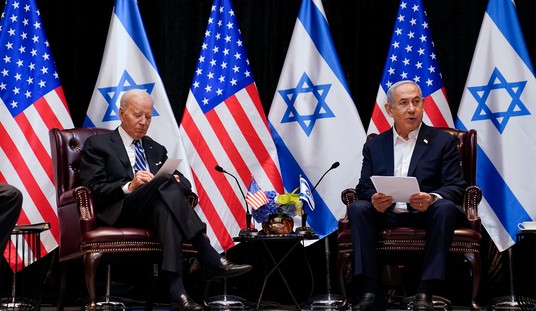WASHINGTON – Deputy National Security Advisor for Strategic Communications Ben Rhodes said the White House “fully expected” Iran to continue its “support for terrorism” and the development of its ballistic missile program after the implementation of the nuclear deal.
In the beginning of the year, Iran had reportedly met all the requirements in the nuclear agreement to collect billions in sanctions relief. Rhodes said Iran is having “very great difficulty” accessing the relief.
“We were very clear in the advocacy for the implementation of the Iran deal that this is focused on the nuclear program. I think we were very straightforward that we fully expected Iran would continue to engage in other activities we found deeply troubling like its ballistic missile capability, its support for terrorism, destabilizing activities in the region, human rights violations,” he said at the Arms Control Association’s annual meeting in Washington.
“Frankly, the case we made is it’s all the more imperative to have a nuclear agreement with a country like that because you would not want a country that has a ballistic missile program and destabilizes its region to have access to a nuclear weapon,” he added.
Rhodes continued, “So the first point here is sometimes when I hear people say that the Iran deal hasn’t stopped this other behavior — we said over and over and over again the Iran deal was focused on the nuclear program and that we would have other means of dealing with those other elements of Iranian behavior.”
He declined to directly answer why President Obama would veto a bill proposed by two Democratic senators to extend economic sanctions on Iran. Rhodes said sanctions are already in place for Iran’s missile program and the administration would possibly explore further sanctions in the future.
“We are entirely comfortable and clear about the fact that we may have to pursue additional sanctions if Iran continues to violate basic international norms as it relates to its ballistic missile program or its support for terrorism, for instance,” he said.
“The question is, if people are designing new legislation, does it interfere with the commitment we have to fulfill the JCPOA?” he said.
Rhodes recently made headlines for describing the tactics the White House used to sell the Iran deal to the American public.
“All these newspapers used to have foreign bureaus,” Rhodes said in the New York Times. “Now they don’t. They call us to explain to them what’s happening in Moscow and Cairo. Most of the outlets are reporting on world events from Washington. The average reporter we talk to is 27 years old, and their only reporting experience consists of being around political campaigns. That’s a sea change. They literally know nothing.”
During the event, Rhodes alluded to the criticism of his comments.
“I know there’s been just a little bit of commentary about this recently but look, the obvious truth is this: the White House did not have to convince the Arms Control Association to defend the Iran deal. You’d thought about these issues for years. You’d advocated for diplomacy,” he said. “You shared ideas about what a deal could look like – before we even had one – and that helped us in the negotiations and yes, you – and our other allies – successfully defended the deal because it was a good deal. Then you went back to criticizing many other aspects of our nuclear policy.”
Some Republicans who oppose the Iran deal have criticized the agreement for allowing Iran to collect roughly $150 billion in sanctions relief. Rhodes assured the audience that money has not been flowing into Iran because of the implementation of the deal.
“We’ve actually had the opposite challenge, which is they’ve had very great difficulty in accessing sanctions relief precisely because we have so many other sanctions related to Iran that banks are uncomfortable doing business,” he said. “So there’s not been a problem of this windfall coming to the Iranians.”








Join the conversation as a VIP Member